Every time I come across a story about a sweet mama dog and her puppies, I am constantly reminded of just how caring dogs are and how much they do to protect their young.
They are some of the most empathetic animals in the world, and we don’t appreciate this fact enough.
In this story, we will talk about a mama dog who was doing everything she could just to help her puppy have a normal life.
She Was Hugging Her Puppy
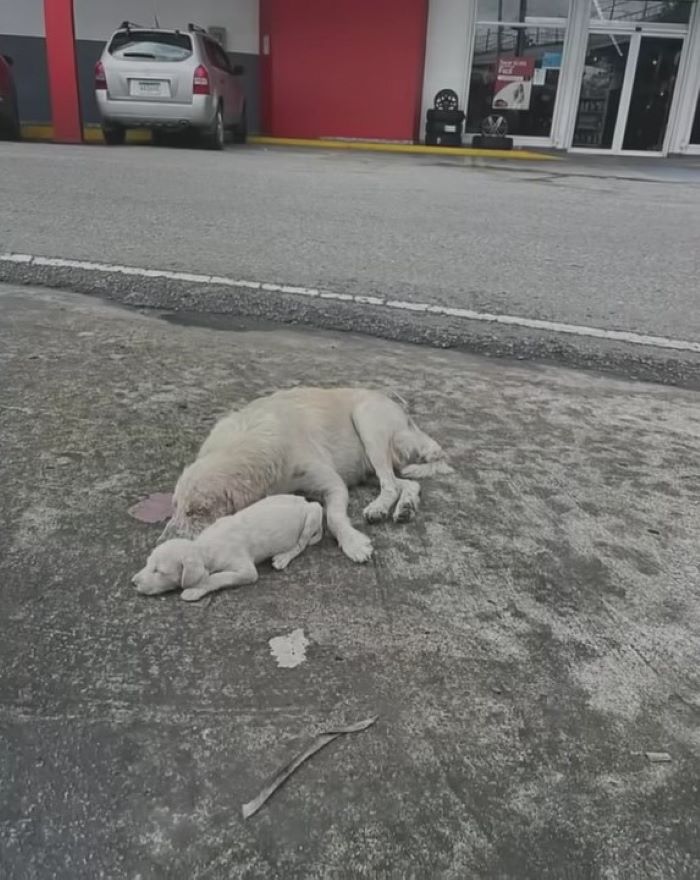
When a group of girls noticed the struggling mama dog and her puppy, they couldn’t just sit back and do nothing.
They asked around to see if anyone claimed these dogs, but the people just told them that they were strays who had been living there for a few days.
Seeing just how malnourished and sad they looked, it was enough to make anyone feel completely heartbroken.
The kind girls gave them some food and water, and the mom was so grateful to see that somebody had finally shown them some kindness.
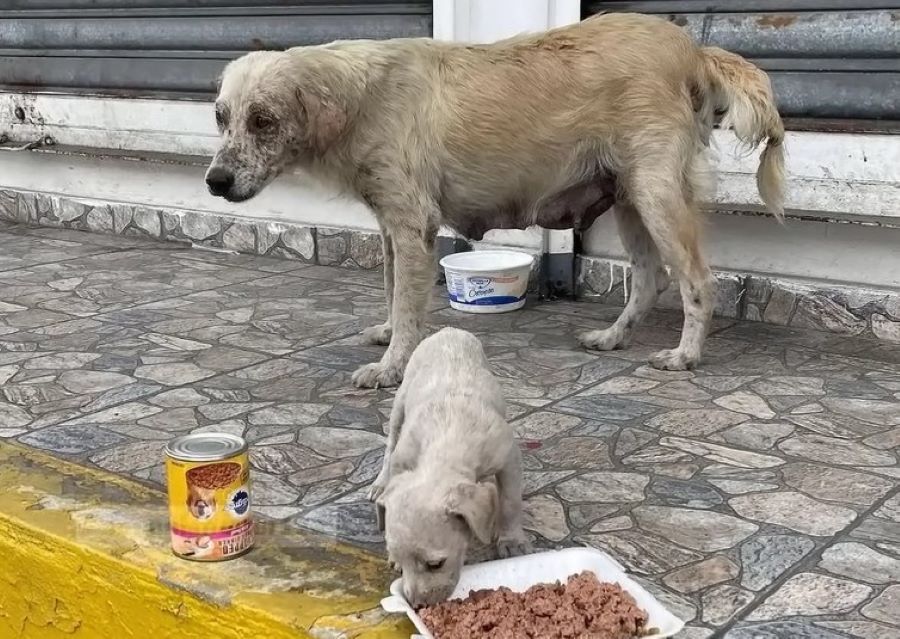
She ate very little and left the rest of it to her baby, like a caring mother would. Now that the situation was no longer so dire for this family, the girls called for rescuers.
They were kind of busy and arrived later that day, but they were surprised to see that the girls stayed with the dogs the whole time.
It’s kind people like them that restore my faith in humanity every day. The rescuers then examined the dogs and noticed that the puppy had some sort of health problem.
The mom was sleeping the whole time, likely due to exhaustion. The rescuers didn’t want to scare her, so they gently woke her up and placed her in the vehicle.
Vet Revealed Many Problems
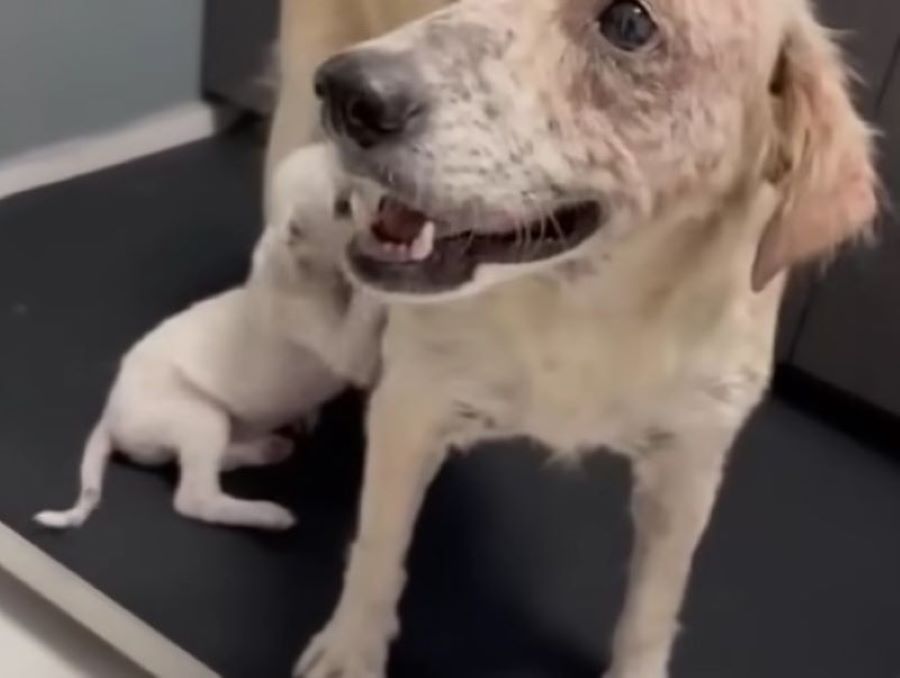
At the vet, they determined that both the mom and her baby had Ehrlichia, which is a parasitic bacteria. Among other problems, they were anaemic and had infected skin.
The vets were confused as to how she only had one puppy. They speculated that she must have had an owner who used the mama dog for breeding and then abandoned them later.
There was no way to confirm this information, but it did not matter. The rescuers would now take care of the two of them until they found a new home.
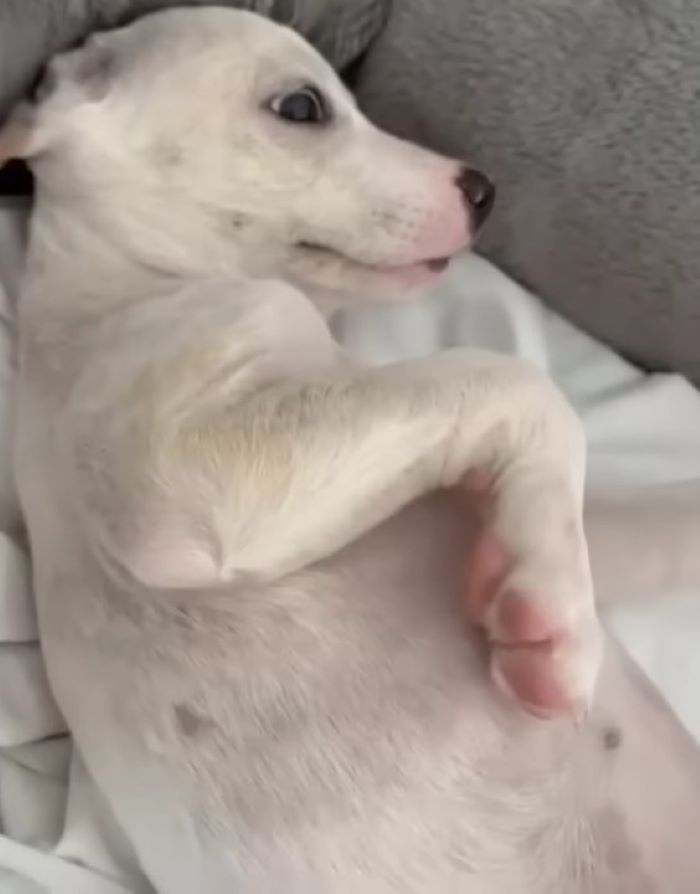
As if things weren’t bad enough, an X-ray scan showed that the mom’s tail was broken. It healed some time ago, but not quite how it should have, so they needed to help her somehow.
To help with their treatment, they were separated for a while. This didn’t help make the mom feel easier, as she was worried about her puppy constantly.
When the two were reunited, the mom was visibly happier, and she immediately got back into her role and the only thing she wanted was to spend more time with her baby.
They Were So Happy Together
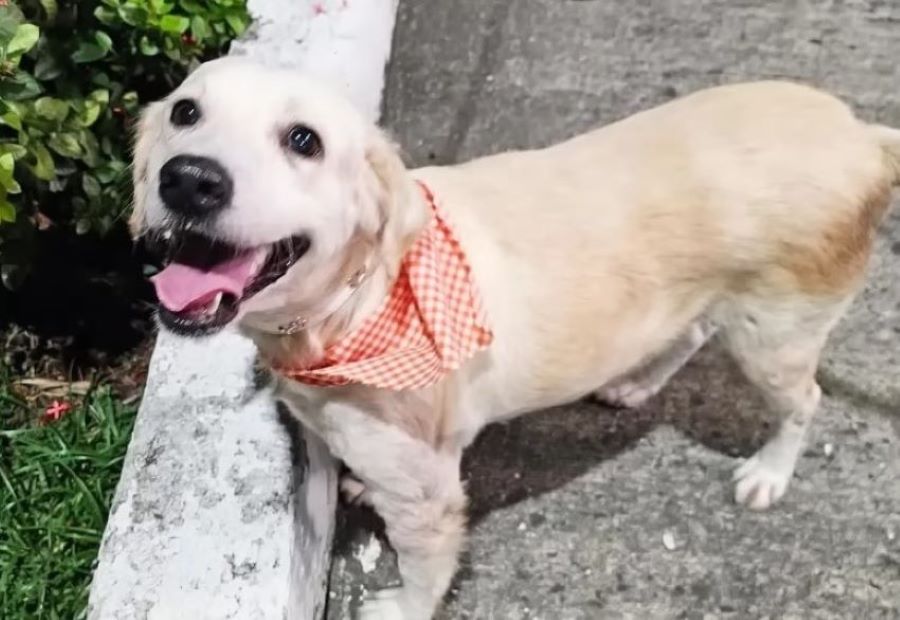
The two have made remarkable progress in their recovery, and they are almost completely healthy now. Their rescuers named them Ala and Mafa.
When talking about a new home for them, the kind people decided that they would only accept offers if they were both adopted together, as they did not want to separate them.
They got quite a few offers, but only for the puppy, Mafa. This was a problem as it made it much more difficult for them to find a home.
So, their rescuers decided to adopt the two of them, as they already loved them and felt like it would be an amazing thing for all of them.
In the end, their story had a complete turnaround, and now this sweet mama dog and her puppy are enjoying their life with the people who gave them a chance when they needed it the most.
If you’ve ever wondered about the foods that are off-limits for your furry companion, onions are definitely at the top of that list. As a seasoned dog trainer, you know that certain human foods can pose serious health risks to our four-legged friends. Onions, in particular, can pack a harmful punch for dogs, but have you ever stopped to think about why that is?
When it comes to canine nutrition, understanding what’s safe and what’s not can make a world of difference in keeping your pup happy and healthy. Onions may seem harmless, but for dogs, they can be surprisingly toxic. So, the next time you’re prepping a meal or sharing a snack with your pet, it’s crucial to be aware of the hidden dangers that onions can present.
Understanding Canine Food Sensitivities
The Components of Onions
Onions contain a substance called thiosulfate. This compound can lead to oxidative damage to your furry friend’s red blood cells. Remember, dogs lack the enzyme necessary to properly digest thiosulfate. This inability makes onions toxic to dogs and puts them at risk of serious health issues.
How Dogs Process Food Differently Than Humans
Dogs metabolize food differently than humans do. Their digestive systems don’t process certain foods the same way ours do. For instance, the compound in onions that causes harm to dogs doesn’t affect humans. Keep in mind that what’s safe for you to eat may not be safe for your canine companion. Always be cautious when sharing food with your furry friend to keep them healthy and happy.
The Toxicity of Onions to Dogs
The Chemical Culprit: Thiosulfate
Onions contain a compound called thiosulfate, which is harmful to dogs. This compound can lead to oxidative damage to a dog’s red blood cells. Since dogs lack the necessary enzyme to digest thiosulfate effectively, even small amounts of onions can be toxic to them.
Acute vs. Chronic Poisoning in Dogs
When it comes to onion toxicity in dogs, there are two distinct types: acute and chronic poisoning. Acute poisoning occurs when a dog ingests a large amount of onions at once, leading to immediate symptoms like vomiting, diarrhea, and lethargy. On the other hand, chronic poisoning happens when a dog consumes small amounts of onions over an extended period, resulting in symptoms that may not be immediately apparent but can have serious long-term effects on their health.
Clinical Signs of Onion Toxicity in Dogs
Gastrointestinal Symptoms
Eating onions can lead to upset stomach in dogs. Symptoms may include vomiting, diarrhea, and abdominal pain. These signs can appear within a few hours of ingestion and may persist for a day or two. If your dog shows these symptoms after eating onions, contact your vet immediately.
Hematological Symptoms
Onions can also affect your dog’s blood cells. Hematological symptoms of onion toxicity include pale gums, weakness, rapid breathing, and lethargy. In severe cases, it can cause damage to red blood cells, leading to anemia. If you notice any of these symptoms in your dog, seek veterinary care promptly.
Diagnosis and Treatment of Onion Poisoning
Laboratory Tests to Confirm Diagnosis
If your dog shows symptoms of onion poisoning such as vomiting, weakness, or discolored urine, your vet may recommend specific laboratory tests to confirm the diagnosis. Tests might include a complete blood count (CBC) to check for abnormalities in red blood cells and a biochemical profile to assess organ function, especially the kidneys. These tests can help determine the severity of onion toxicity and guide the treatment plan.
Treatment Options for Onion Toxicity
Treatment for onion poisoning in dogs typically involves inducing vomiting to remove the ingested onions from the system if the ingestion was recent. Your vet might also administer activated charcoal to prevent further absorption of toxins. In severe cases, supportive care such as intravenous fluids, blood transfusions, and medications to protect the liver may be necessary. Prompt veterinary intervention is crucial to improve your furry friend’s prognosis and prevent complications.
Preventing Onion Poisoning in Dogs
Safe Food Handling and Storage
When it comes to keeping your furry friend safe, proper food handling and storage are key. Make sure to store onions and foods containing onions in a place that is out of reach for your dog. Always securely seal containers or wrap foods to prevent any accidental ingestion. Be cautious when preparing meals, ensuring that your dog doesn’t have access to any onion-containing ingredients. Remember, prevention is better than cure.
Identifying Hidden Sources of Onions
Onions can sneak into various dishes and food products, so being vigilant is crucial. Check food labels for any mention of onions or onion powder. Be aware that onions can be present in unexpected items like baby food, soups, and sauces. Also, be cautious when sharing leftovers with your dog, as dishes like pizza, burgers, and pasta often contain onion toppings or seasonings. Stay alert and keep your pup away from any potential sources of onion contamination.
Remember, a little extra attention to detail can go a long way in protecting your pet from onion poisoning. So, stick to onion-free foods and snacks when sharing your meals with your dog to ensure their well-being.
Conclusion
So, remember, onions can be harmful to your furry friend. Keep them away from your dog’s diet to ensure their safety. Be mindful of what you feed them and always double-check for any hidden onion ingredients. Your pup’s health is a top priority, so stick to onion-free foods to avoid any risks of poisoning. Stay informed, stay cautious, and keep your canine companion happy and healthy.
Frequently Asked Questions
Can dogs eat onions?
No, dogs should not eat onions as they contain a toxic compound called thiosulfate, which can be harmful to them.
What are the dangers of feeding onions to dogs?
Feeding onions to dogs can lead to onion toxicity, resulting in health issues such as anemia and damage to red blood cells.
What are the signs of onion poisoning in dogs?
Clinical signs of onion poisoning in dogs may include weakness, vomiting, diarrhea, and pale gums due to reduced red blood cell function.
How can onion poisoning in dogs be diagnosed?
Onion poisoning in dogs can be diagnosed through blood tests to check for changes in red blood cells and the presence of thiosulfate.
What are the treatment options for onion poisoning in dogs?
Treatment for onion poisoning in dogs may involve inducing vomiting, supportive care like intravenous fluids, and monitoring blood cell counts.
How can onion poisoning in dogs be prevented?
Preventing onion poisoning in dogs involves avoiding feeding them foods containing onions and taking measures to ensure that onions are stored securely and not easily accessible to dogs.
[no_toc]

Hey there, I’m Janet Brooks, a dog-loving student from California. I’m all about helping pups in need, especially those without homes. Me and my awesome friends work together to give shelter and love to stray dogs. Oh, and I also write blogs about dogs to share helpful info.